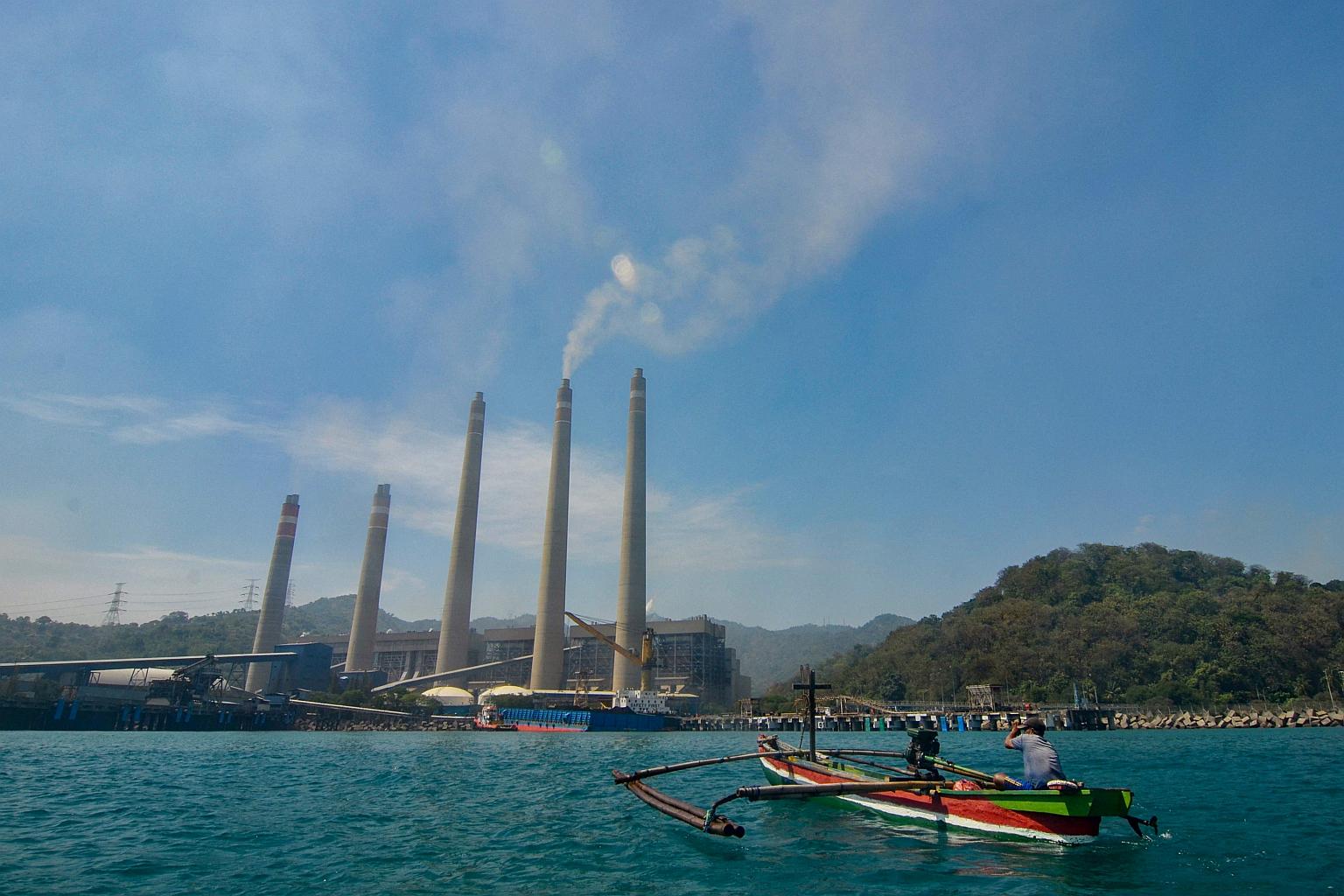Indonesia eyes subsidies, nuclear power in renewable energy Bill
Sign up now: Get insights on Asia's fast-moving developments

The Bill seeks to ensure all Indonesians have access to power and to entirely transition to renewable energy by 2060.
PHOTO: AFP
JAKARTA (BLOOMBERG) - Indonesia, the biggest thermal coal exporter, vowed to subsidise renewable energy projects and open its first nuclear power plant by 2045 in a draft legislation to help it reach its net-zero emissions goal.
The Bill, which still needs approval from President Joko Widodo and Parliament before becoming law, seeks to lead the country on a path that would both ensure all 270 million residents have access to power while also making the country entirely reliant on renewable energy by 2060.
The draft sets out a strategic outline, with more detailed rules to be issued later.
Officials have their work cut out for them, as the nation with the world's fourth-largest population also has one of the world's smallest wind and solar power fleets. Indonesia relied on fossil fuels for 86 per cent of its electricity in 2020, according to BloombergNEF.
Here are a few key issues in the latest draft of the Bill, which will soon be discussed by the government:
Export tax
Indonesia will prioritise local demand before allowing renewable energy to be transmitted overseas, with exporters required to pay a tax. The stipulation would follow a ban by nearby Malaysia, and could hamper neighbouring Singapore's plan to import clean electricity. The focus on domestic use also applies to the coal sector, where miners will have to set aside at least 30 per cent of their output for local consumption at a ceiling price of US$70 (S$96) a tonne for high-quality coal, compared with current global prices around S$400 a tonne.
Funding incentives
The government will give incentives, including tax and administrative ones, to support new projects. It will also subsidise renewable energy when the cost of producing it is unable to compete with fossil fuels. A renewable energy fund will collect money from the state budget, export taxes, carbon trading funds and other sources, then use the cash to build infrastructure, give incentives for developers or to support research.
Nuclear power
Indonesia will set up a nuclear power assembly that will monitor the development and operation of atomic plants. Only state-owned companies would be allowed to build, operate and shut such plants. The country plans to operate its first one in 2045.
Coal reliance
The Bill differentiates between "renewables" - wind, solar, geothermal, hydropower, biomass and a few other small technologies - and "new energy", which includes nuclear, hydrogen and several coal-based technologies, while carving out room for both to aid in the transition. Indonesia is building its first coal gasification plant that will start operating in 2024.
Local impact
The government seeks to ensure renewable energy investments would benefit surrounding communities. Companies must prioritise the use of local workers as well as domestically sourced materials, while investors are expected to transfer their technology to local workers. Companies must also prevent pollution and have recovery plans in place if their operations lead to environmental damage.


